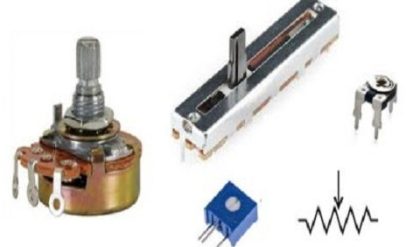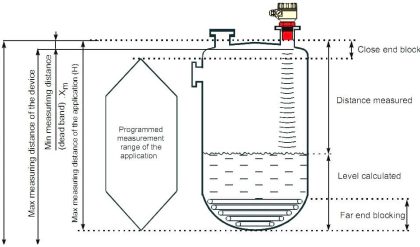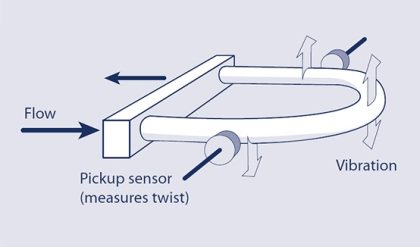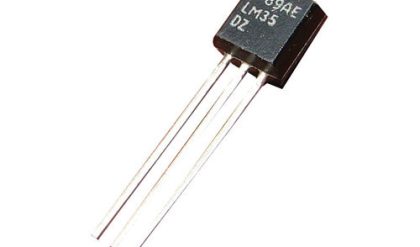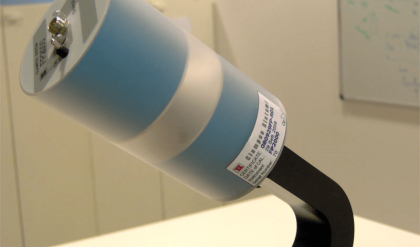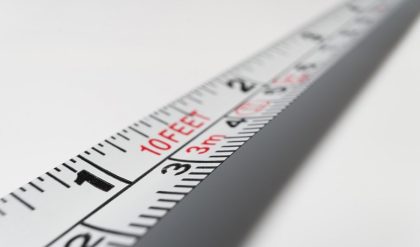
A pressure transducer is a measuring device which converts an applied pressure into an electrical signal. Generally, a pressure transducer consists of two parts, an elastic material which deforms under the application of pressure and an electrical part which detects this deformation.
How low pressure transducers work
Depending on the range of pressures to be measured the elastic material is given different shapes and sizes, such as bourdon tube, piston, diaphragm, and bellows. Most common among them is the diaphragm.
Three different types of electrical device can be attached to this elastic material to make pressure transducers. These include resistive, capacitive and inductive types.
- Resistive pressure transducers uses strain gauges, which are bonded the deformable material. Any change in the deformation causes the change in the electrical resistance of each strain gauge which can be measured by a Wheatstone bridge.
- In the capacitance type pressure transducers, change in pressure is measured change in capacitance between two capacitance plates. One plate bonded to the deformable side of the elastic material while other one is bonded to the unpressurized surface.
- In inductive pressure transducer the deformation of the elastic material is used to provide linear movement of a ferromagnetic core. This linear movement will vary the induced AC current.
Low pressure measurement

Among the different pressure transducers discussed bourdon gauge, piezo- resistive diaphragm gauge and the capacitance diaphragm gauge are suitable for measuring low vacuum pressures. Bourdon gauge can measure roughly in the range of 0–1000 mbar, while diaphragm gauges can measure in the range of 0.1–1000 mbar. For very low pressures, there are other types of transducers available, which are based on other principles. These include Pirani gauge, thermocouple and ionization gauge. The first two techniques are based on the rate at which heat is loss from a heated filament placed in the low-pressure environment. This heat loss is depended on the number of gas molecules per unit volume.
- Pirani gauge – This gauge calculates filament temperature by measuring filament resistance. Resistance measurement is measured with the help of a Wheatstone bridge circuit. The relation between the resistance and the applied pressure is highly non-linear.
- Thermocouple – In this type of pressure transducer a thermocouple is attached to the heated filament to measure its temperature. For the reference temperature in the thermocouple, room temperature is used. The voltage output of the thermocouple varies non-linearly with the gas pressure.
- Ionization gauge – It is highly useful for measuring very small pressures in the range of 10–3 atm to 10–13 atm. Here, the gas, whose pressure is to be measured, is ionized with the help of a heated filament. The current is measured between two electrodes in the ionized region, which depends on the gas pressure, because the number of ions per unit volume depends on the gas pressure.
Current versus pressure relationship is linear Low pressure measurement is used in such applications as:
- In medical fields- Nebulizers, Spirometers etc.
- In Industries- HVAC control, static duct pressure etc.
Growing interest in the market addresses material inside of pressure transducers:
- Mercury is contained in some to conduct the sensing of the pressure to the electrical output. In many states mercury is a banned substance though it is not enforced or in some cases it is grandfathered on existing equipment which may use mercury but prohibits it on new products.
- The second substance is NaK (sodium Potassium) which is used in place of mercury in the transducer. NaK will throw a spark should it become exposed to air (oxygen). In environments where flammability is high, this is a danger.
- There is a new product in market now that has a much thicker diaphragm (extending life) and comes with a longer warranty than other products. It has no fill and does its job by electronics.
It is our sense that market pressure will eventually make both mercury and NaK unacceptable among customers of those making products with equipment utilizing these sensors.
